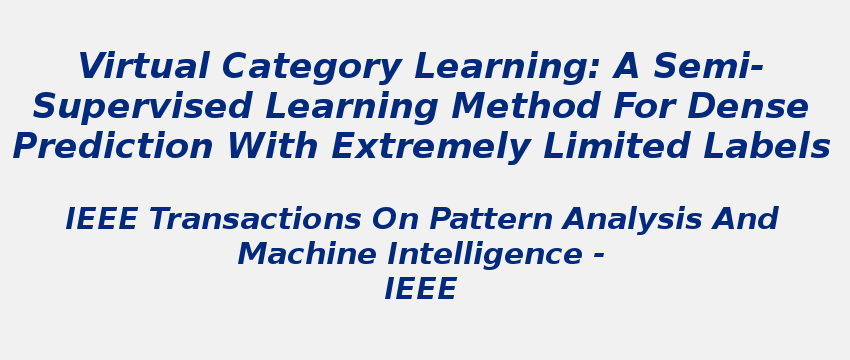Research Area: Machine Learning
Due to the costliness of labelled data in real-world applications, semi-supervised learning, underpinned by pseudo labelling, is an appealing solution. However, handling confusing samples is nontrivial: discarding valuable confusing samples would compromise the model generalisation while using them for training would exacerbate the issue of confirmation bias caused by the resulting inevitable mislabelling. To solve this problem, this paper proposes to use confusing samples proactively without label correction. Specifically, a Virtual Category (VC) is assigned to each confusing sample in such a way that it can safely contribute to the model optimisation even without a concrete label. This provides an upper bound for inter-class information sharing capacity, which eventually leads to a better embedding space. Extensive experiments on two mainstream dense prediction tasks -- semantic segmentation and object detection, demonstrate that the proposed VC learning significantly surpasses the state-of-the-art, especially when only very few labels are available. Our intriguing findings highlight the usage of VC learning in dense vision tasks.
Keywords:
Author(s) Name: Changrui Chen, Jungong Han, Kurt Debattista
Journal name: IEEE Transactions On Pattern Analysis And Machine Intelligence
Conferrence name:
Publisher name: arxiv
DOI: 10.48550/arXiv.2312.01169
Volume Information: Volume 5,(2024)
Paper Link: https://arxiv.org/abs/2312.01169
